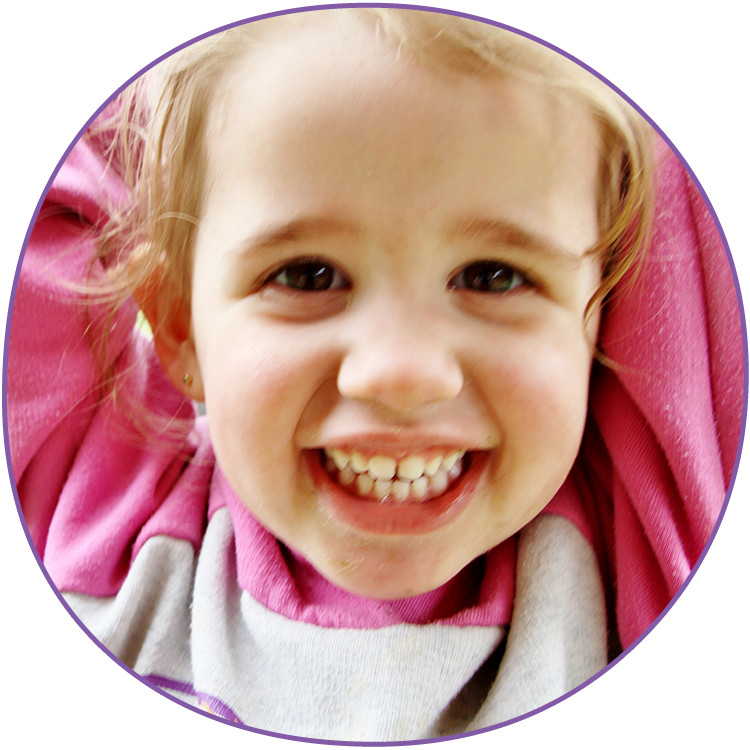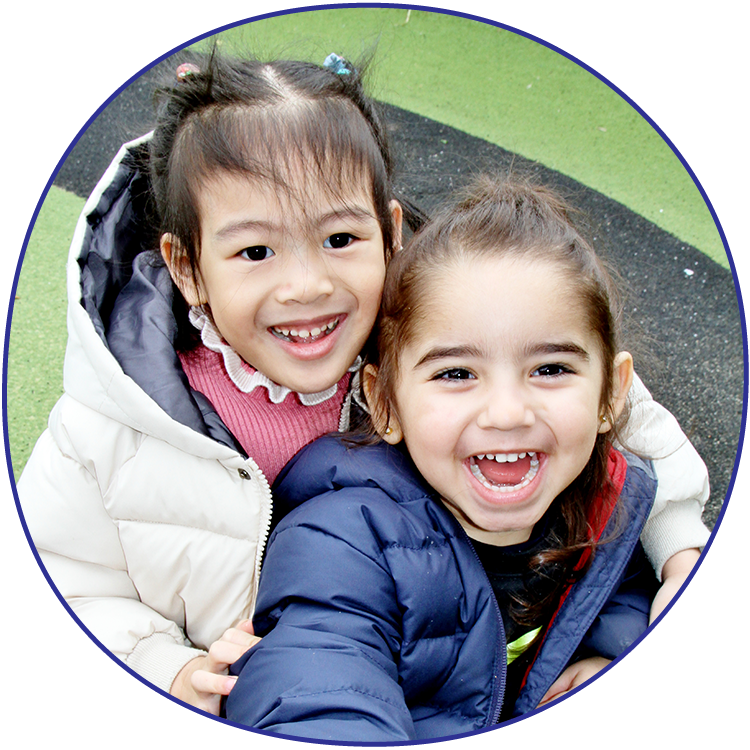Our Philosophy
Preschool Philosophy & Practice
The early childhood years are crucial and formative years. What takes place during these years plays an important part in determining the way a person feels about him or herself, the way a person relates to others, their capacity to solve problems, the way a person thinks and learns.
At Love & Cuddles Pre-School we have an inclusive anti-bias approach that is implemented to support children to develop a strong sense of identity, have high self-esteem and confidence to be active lifelong learners and contributors to their world.
Diversity is celebrated and staff aim to provide a multilingual/multicultural environment and experiences.
At Love & Cuddles Pre-school we recognise the tremendous importance of these early childhood years and the subsequent importance of our role as early childhood educators in supporting, nurturing and facilitating growth and development of children.

We believe that learning is an active process in which children contribute to their learning through interactions and experiences with the environment, collaboration and communicating in positive trusting relationships. We recognise and value that all children and families are unique with different backgrounds, individual needs, strengths and funds of knowledge. The family and community are a significant and integral part of a child’s learning and development. Collaboration between community, families and the centre is valued and fundamental to a child’s sense of wellbeing, security and to provide meaningful learning experiences. Our aim is to value each child as a unique individual within the context of his/her own family and community.
Play
We place play in the centre of our preschool program. The Early Years Learning Framework for Australia defines play based learning as “ a context for learning through which children organise and make sense of their social worlds, as they engage actively with people, objects and representations”.
Within the context of play there exists a myriad of learning opportunities. Children explore social relationships, contribute ideas and take on the ideas of others. Play provides the opportunity to experiment, explore, and discover, to solve problems. As children play there are opportunities to talk, to listen and to explore language. There are also opportunities to relax, to have fun, to experience and to express joy.
Our teaching team plays an important part in supporting children’s learning within the context of our play-based program. We provide resources, which support children to form connections, to explore, create, construct and solve problems. We maintain a balance between experiences that are initiated by the children and those that are supported or facilitated by thoughtful and intentional teaching.
Connections and Community
Love & Cuddles Pre-School places a value on building connections between a child’s home, family and the preschool. We believe that it helps children to develop a sense of belonging if they know that their preschool teachers take an interest in and value the child’s own experiences and life outside of preschool.
Woven throughout the rhythm of our preschool day are opportunities for children to share their own experiences, ideas and interests. A similar value is placed on encouraging families to participate within the program and on building connections and relationships with each child’s family.
We give thought to creating a "home away from home" for our preschool children. Through small touches such as furnishings, displays of photos, objects of beauty and cooking smells from the kitchen, we endeavour to establish a sense of home. In addition to nurturing and building upon our own preschool community, we aim to reach outwards, forming connections with and taking an interest in the broader community.

We believe that it is important for children to begin to have an understanding of what it is to belong to a community. We help children begin to identify with “belonging” in a number of contexts. For example, belonging to their preschool class group, belonging as part of the preschool as a whole, belonging to their family and also that we belong to a wider community – our country, our world.
Learning Environment & Pedagogical InfluencesOur learning environment supports the development of children who can make choices, think independently, take challenges, explore ideas, ask questions, feel nurtured, safe, and well cared for, within a social play based context. While there is a rhythm to the day, we endeavour to be flexible and responsive to the children’s own rhythm and to their interests, ideas and contributions. We aim to place an equal value on the learning through play that takes place both indoors and outdoors. Experiences tend to be open ended – with children encouraged to use art and craft materials, blocks and construction materials creatively, in their own way, with teachers on hand to guide, support and facilitate. Teachers and children work collaboratively together – co-constructing knowledge, meaning and understandings. There are a number of pedagogical influences and supporting theories, approaches, ideas which underpin or weave throughout our program. These include: The Early Years Learning Framework for Australia (EYLF) which places an emphasis on a child’s sense of belonging, being and becoming and which identifies five key learning outcomes:
|
Gardner's Eight Multiple Intelligences
Giving consideration to the provision of experiences which support learning across the following domains:
- Verbal/linguistic
- Musical rhythmic
- Logical/mathematical
- Visual/spatial
- Bodily kinaesthetic
- Naturalist
- Intrapersonal/introspective
- Interpersonal/social
Social constructivism
- Learning and development is a social, collaborative activity.
- Preschool learning should occur in a meaningful context and not be separated from the learning and knowledge children develop in the "real world."
- Out of preschool experiences should be related to the child's preschool experience.
Drawing on the experiences of the schools in the town of Reggio Emilia - Italy
- Children are seen as strong, competent and capable
- Children are regarded within the context of community – ie in relation to other children, their family, teachers and the broader community rather than in isolation.
- Consideration of the role of the environment in supporting learning, thinking, communication, collaboration and relationship building.
- The role of the teacher as a guide, collaborator, nurturer, partner, researcher.
- Parents regarded as partners within the learning process
- Consideration given to the recording and documenting of children’s ideas, their learning & thinking.
- The importance of teachers reflecting on their own practice – collaborating with one another.
The NSW Curriculum Framework for Children's Services
A value is placed on...
- Openness
- Diversity
- Respect for others and the physical world
- Service, commitment to the well being of others and the world around us
- Connection, relationship, collaboration
- Feelings, as well as behaviour as ways of understanding and communicating
- Resilience and perseverance
- Beauty
- Thoughtfulness and critical reflection
- Continuous pursuit of knowledge and understanding
Our Philosophy is seen as a living document, continually evolving in the light of new research, the ideas of new team members and input from families.

